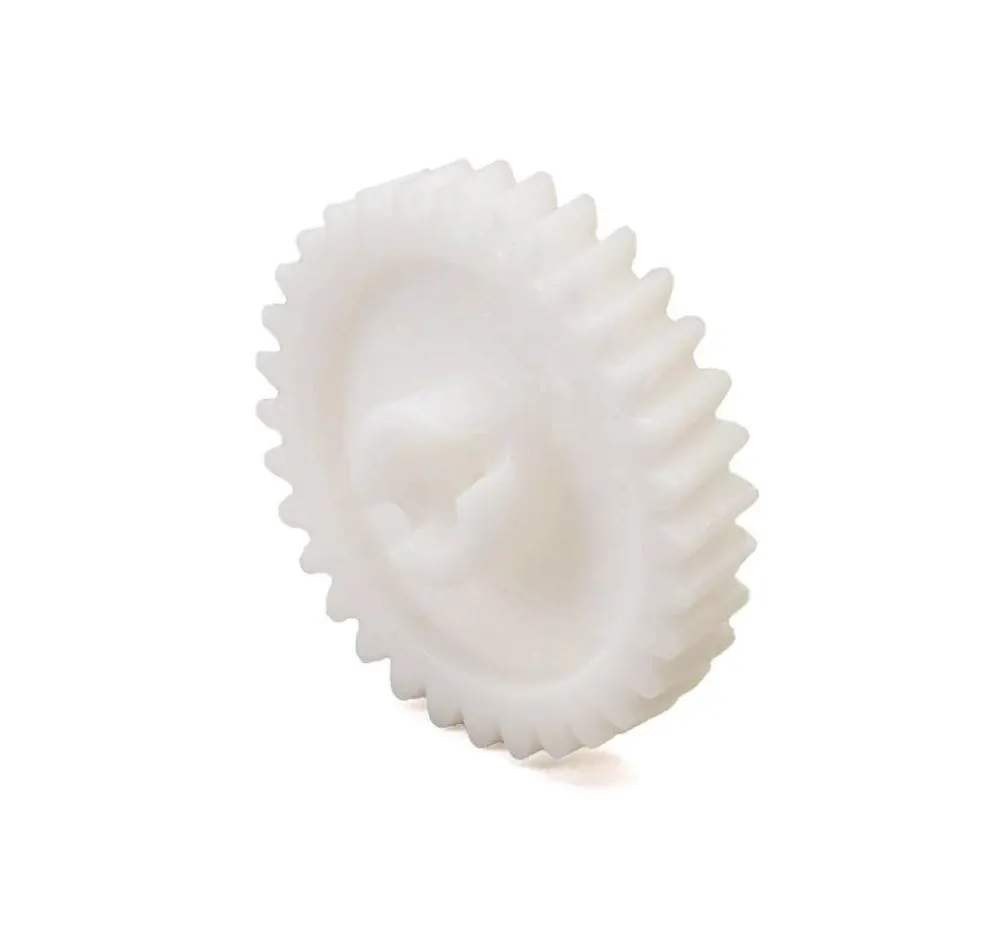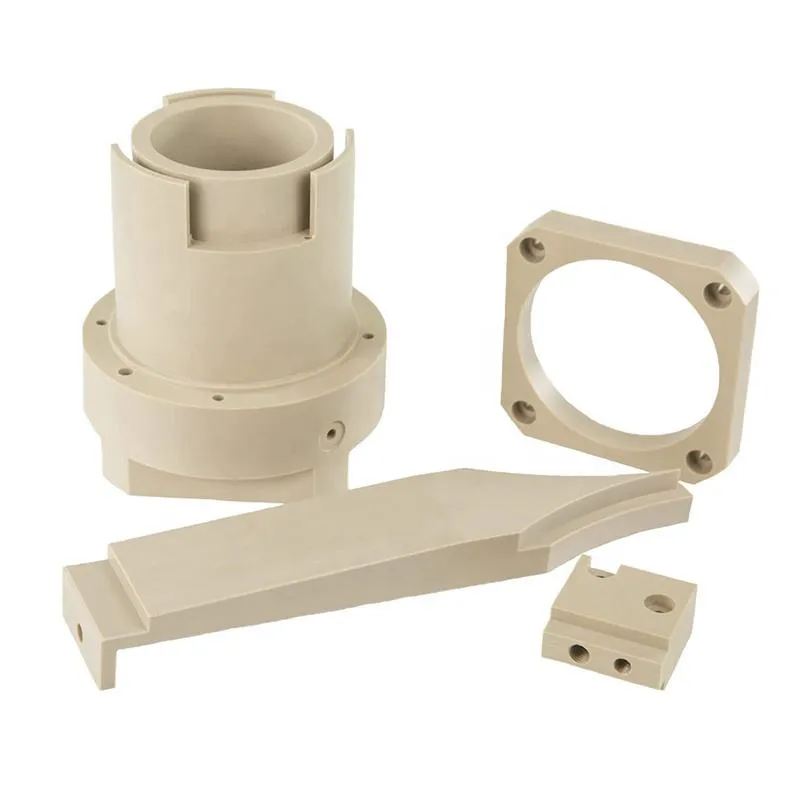Finishes
As is the case with most plastics, the surface-finishing options are limited. This is especially the case with nylon, which cannot be easily plated. Furthermore, sanding produces a frayed surface that often looks worse than the machined surface. Some possible finishes are listed below:
As Machined:
CNC machining in nylon 6/6 will often leave an excellent surface finish. FlagShip machinists achieve this with sharp HSS (high-speed steel) cutting tools with appropriate high rake and relief angles.
Bead Blast:
Nylon 6/6 can be further smoothed with bead blasting operations to achieve a lower surface roughness.
Dying:
Nylon readily absorbs liquid, so dyeing is a common finishing option. Solvent dyes are used to dye the surface of the white nylon parts in various colors.


